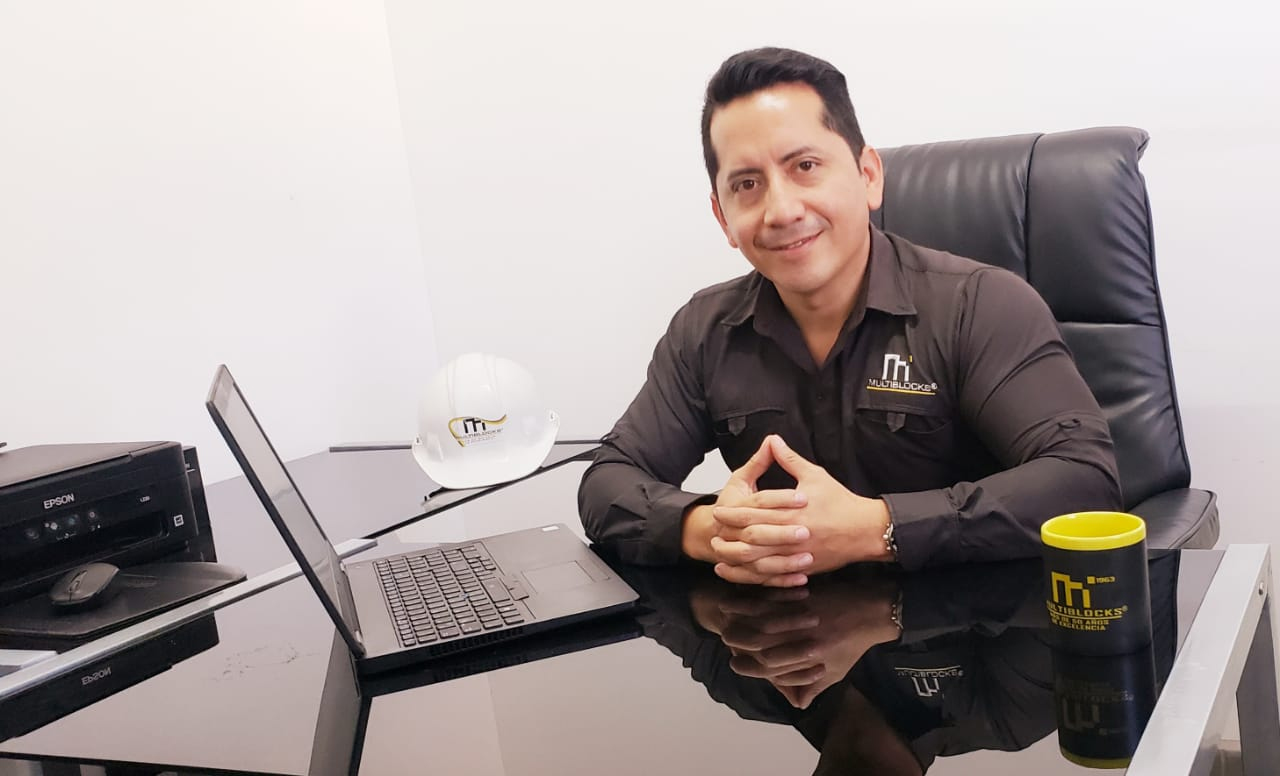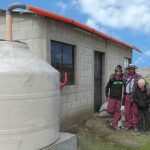Healthy Home Kits: The Amparo García Family

Under the purple mountains of Huehuetenango lies a small village called Aldea Chacaj Nentón. Except for a loose gravel path, the village has no proper road. Neighbors say that, within the community, there is no accessible potable water, nor are there educational opportunities available for their children. According to a 2006 report, over 95% of Nentón’s population lives below the poverty line, with 80% of the population living in extreme poverty. Each family here survives on less than 40 quetzales, or $5.50, per day, making it a struggle to simply get by.
However, there is change in the air. Maria Amparo Garcia (23) knows it. Every since receiving a smokeless stove, latrine, and water filter from Habitat for Humanity Guatemala, living a healthy and happy life has become a bit easier for her family. “We’ve never had a stove of our own,” she reveals to us.

Maria’s husband, Diego (22), works in the fields as an agricultural laborer. Unfortunately, like most men in the community, he has been unable to secure a steady income to support the couple and their two small daughters, three-year-old Estejira and one-year-old, Josefina. For that reason, any household expense, like a clean and safe cooking device, is usually out of the question.
“We cooked in a hole in the floor of our kitchen over an open fire, putting the logs directly into the floor.” Maria points at our feet. “We lived for two years like this.” She hated it. “I couldn’t cook when the wind was blowing. I always had a cold, and I could never really open my eyes, all because of the smoke.” She then gestures to the ceiling. Soot scars the wooden beams, demonstrating the deadly impact.
The open flames also posed a danger to her children. “Because of the open fire, my children used to grab at the wood, which burned them.” She bites her lip. “No more.”
Maria notes that the stove has had a significant economic impact, allowing her family to divert their savings for their greatest needs. “We used to have to buy 15 pieces of wood a day. Now, it’s very little of that. Whatever money we do save from not buying wood, we can now put to the little, but important things.”
She shifts a pot of corn on her stove as she speaks. “We used to wonder where our next meal was coming from. With this stove, that has become easier. We can now use whatever extra money we save for food.”
The smokeless stove is not the only device that has saved her money. She explains that, “We used to buy water for 7.5Q (about $1.00) per jug. We bought two jugs a week, which lasted us about eight days.” Maria mentions that since receiving the filter, all she has to do is fill up her filter with water from the river that meanders behind her house. This way, she saves money and also decreases the family’s dependence on their community for water sources, which in the past, has been unreliable.

In addition to a clean stove and highly effective water filter, the family’s latrine has also improved their living circumstances. Maria explains that their previous latrine was small, ineffective, and in bad repair. “Our old latrine was made out of a few planks stuck together with corn husks stuffed in between the slats.”
She explains that the previous latrine became extremely unsafe. “Dirt used to fall away around the hole, making it bigger and bigger. It became dangerous to try to use the bathroom, for fear that we would fall into the hole.”
She cites that the new latrine, however, is well made, mainly because it has a concrete floor, and the hole can no longer expand. She laughs, “we’re not afraid to go to the bathroom anymore.”
To Irving and Lois Hall, and their friends who helped change her family’s life, Maria has a special message. “We are so grateful for your support. You helped our family so much with these projects, and we are always looking for more. Thank you for your help, and thank you to Habitat for giving us this opportunity.”




